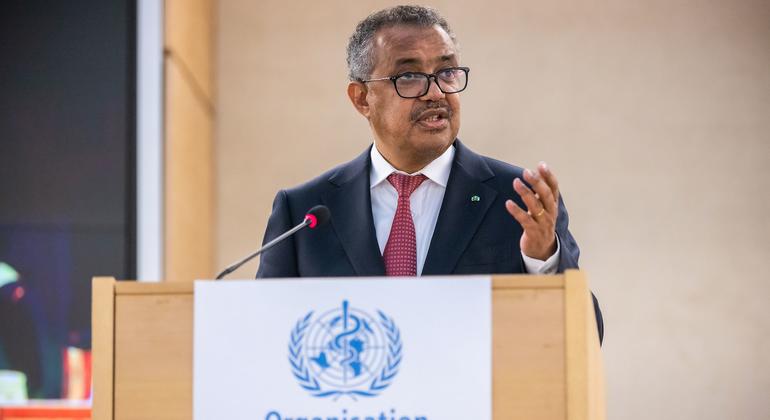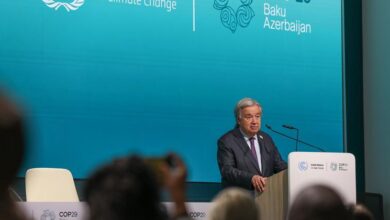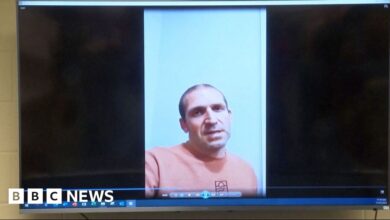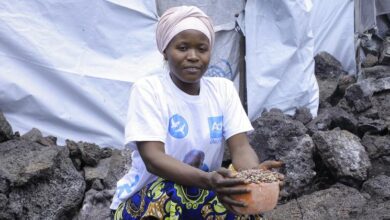WHO concerned after raid on North Gaza hospital

“Since reports this morning of the raid on Kamal Adwan Hospital in northern Gaza, we have lost contact with the staff there,” WHO leader Tedros Adhanom Ghebreyesus wrote on social media platform X.
“This development is really worrying because of the number of patients served and the number of people sheltering there,” he added.
Northern Gaza is enduring an intense military campaign with thousands of civilians believed to have been cut off from humanitarian aid and protection, amid food and other life-sustaining essentials. increasingly depleted.
Mr. Tedros said Kamal Adwan Hospital “was overloaded with nearly 200 patients – a series of terrible injuries that continued to occur,” and hundreds of displaced people were also seeking shelter there.
Dr Rik Peeperkorn, WHO Representative to the Occupied Palestinian Territory, described the reports as “very worrying”.
Medical support mission
The raid came a day after WHO and partners gained access to Kamal Adwan Hospital amid ongoing hostilities in the north.
Dr. Peeperkorn was carrying out a “complex mission” lasting more than 20 hours, he said, speaking from Deir Al-Balah to journalists attending the United Nations’ biweekly humanitarian briefing in Geneva. .
The team transferred 23 patients and 26 caregivers south to Al-Shifa Hospital, located in Gaza City.
They also provided 10,000 liters of fuel, 180 units of blood, trauma surgery and alcohol to pay for 1,600 interventions for Kamal Adwan.
Al-Shifa also received laboratory supplies, anesthetics, drugs and antibiotics which were also delivered to Al-Shifa Hospital to meet the health needs of 6,000 people.

Patients are being transferred between hospitals as part of a two-day mission amid conflict and access restrictions in Gaza.
hospital staff ‘completely overwhelmed’
Dr. Peeperkorn provided an eyewitness account of what he saw.
At a checkpoint near Kamal Adwan, there were “thousands of women and children leaving the area, walking, limping, carrying few belongings towards Salah al-Din and in fact towards Gaza City” , he said.
“We saw very few men or teenagers,” he continued. “We saw men being screened.”
At Kamal Adwan, the team “witnessed chaos and chaos,” he said, noting that during his last visit on October 21 and 22, 75 to 100 patients had present at the facility.
“Now there are probably over 200 patients. The emergency room was overwhelmed, and we saw a lot of patients being brought in… patients with terrible injuries.”
Meanwhile, staff were “completely overwhelmed” and “also ill-equipped to deal with it”.
Dr. Peeperkorn noted Kamal Adwan is one of two hospitals in the north identified by the WHO as “minimally functional.” He understood that the remaining facility, Al-Ahli Arab Hospital, was very isolated and barely functional.
The polio campaign was paused
The WHO official also updated journalists on the massive polio campaign carried out by the United Nations in Gaza, which was postponed in the north this week.
Children there must receive a second dose of the new type 2 polio vaccine, after the first round was administered last month.
He said that to stop the transmission of the polio virus “at least 90% of children in every community and neighborhood must be vaccinated.”
The campaign has reached about 452,000 children in the Central and Southern regions, which he called a “huge achievement.”
The north was the “last round,” but escalating violence, intense shelling, evacuation orders and a lack of guaranteed humanitarian pauses forced the operation to be delayed.
“We also want to protect these 119,000 children in the north, as we did in the first round,” Dr. Peeperkorn said, emphasizing the need to “reach all children, whether they where, to ensure that you achieve this”. 90 percent coverage.”
He emphasized that “we have almost achieved the goal”, adding that “we still have great hope that we can carry out this campaign”.
The humanitarian situation is getting worse
Meanwhile, the United Nations aid coordination office, OCHA, speak The humanitarian crisis in North Gaza is rapidly worsening and essential supplies are in short supply.
Furthermore, most vital aid delivery efforts continue to be denied or hindered, with Israeli authorities once again refusing to authorize the transfer of essential food and water supplies to Jabalya that day.
OCHA warns that intense hostilities continue throughout the Gaza Strip, including the south.
Overnight, an Israeli raid on multiple neighborhoods of Khan Younis left dozens dead and many more injured, including many women and children.
During the operation, families sought safety at An Nasser hospital, a school run by the United Nations, and the Al Mawasi area, most returning home after Israeli forces withdrew.
“Reports indicate widespread damage to homes, leaving people in need of tents, tarpaulins to cover damaged shelters, hot meals and clean water,” the agency said.
Turning to the West Bank, OCHA reports that this month alone, more than 100 incidents involving Israeli settlers have resulted in Palestinian casualties and property damage.
Overall, there were about 180 incidents involving settlers in nearly 90 Palestinian communities, of which more than half were related to the olive harvest season.




